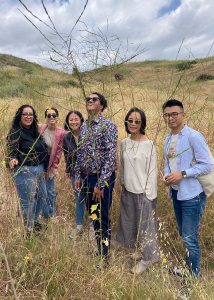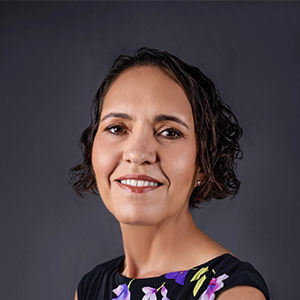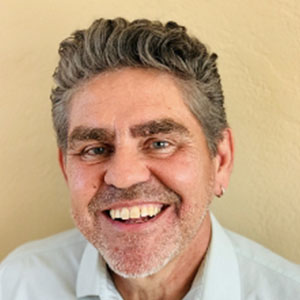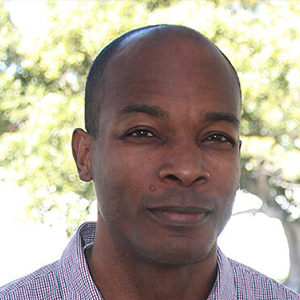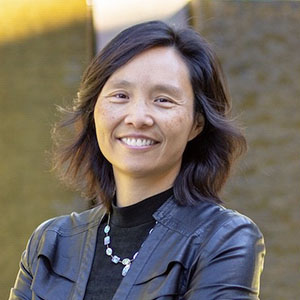UC Underrepresented Scholars Fellowship Program
The UC Underrepresented Scholars Fellowship Program is an intercampus faculty mentoring program serving the ten campuses of the University of California. Our fellowship program pairs junior and mid-career faculty from the humanities and qualitative social sciences with their desired senior mentors from other UC campuses. Open to all faculty at the University of California, the program strives to enhance campus climate, retention, and faculty success by connecting scholars across the system who are attuned to the needs, interests, and experiences of underrepresented and underserved communities and their contributions to the university. The aim of this program is to build spaces of support, share best practices and challenges, respond to unspoken expectations in the academy, and foster a more inclusive and equitable culture of mentorship.
In addition to providing mentorship training, the program facilitates monthly one-on-one meetings for mentors and mentees, provides quarterly professionalization workshops based on the needs and preferences of the group, and brings participants from all cohorts together for an annual in-person event. Mentors and mentees each receive $1,500 in research funds as well as travel costs for meetings at UCHRI on the UC Irvine campus.
Applicants will be selected based on their ability to demonstrate one or more of the following:
- Navigation of one or more barriers, on behalf of themselves or others, such as being a first-generation college student, growing up in an underserved geographic area or community, and overcoming linguistic, structural, or cultural challenges
- Demonstrated research regarding or service in underserved and systems impacted communities
This program is funded by and supports the goals of the Advancing Faculty Diversity Program run by the Office of the Vice Provost of Academic Personnel and Programs at UCOP: “Building on organizational change research, [AFD] projects have contributed to the recruitment of diverse scholars, enhanced faculty commitment to diversity and promoted an equitable academic culture for all faculty.”
Browse our current grants to learn more about the program and apply.
Advisory Board
Miroslava Chávez-GarcíaMiroslava Chávez-García is a Professor of History at the University of California, Santa Barbara, and holds affiliations in the Departments of Chicana/o Studies and Feminist Studies as well as Iberian and Latin American Studies. She currently serves as the Faculty Director of the McNair Scholars Program. Her latest research project focuses on the intersection of population control, environmentalism, and anti-immigration restrictions between the 1960s and the early 2000s. Along with Yvette Martinez-Vu as her co-author, Miroslava is also in the process of finishing a guide for first-generation, low-income, and nontraditional students of color to apply successfully to graduate school. |
Rodrigo LazoRodrigo Lazo is a Professor of Literature and Latin American and Latino Studies at the University of California, Santa Cruz. He was formerly the Vice Chancellor for Equity, Diversity, and Inclusion and a Professor of English at the University of California, Irvine. He is also currently the president of C19: The Society of Nineteenth-Century Americanists. His research is in American literature, broadly conceived across the Americas, and focuses on writers and texts that are concerned with migration, movement, geographic displacement, and communication across distance. In the past, he has served as an Associate Dean in the UCI Graduate Division and the School of Humanities and has received an award for mentorship from the UCI Associated Graduate Students. |
Nigel HattonNigel Hatton is an Associate Professor of Literature and Philosophy at the University of California, Merced. He works at the seams of literature (world literature, 19th- through 21st-century transnational American literature), moral and political philosophy, and social theory (1750 to the present). He is a co-editor of the Critical Refugee Studies Book Series with University of California Press and a former visiting scholar at the Kierkegaard Centre in Copenhagen, Denmark. He is also a founding member of the Braxton Institute, which aims to create learning experiences for social justice, collective healing, and resilience. |
Judy WuJudy Wu serves as the Associate Dean of the School of Humanities and a Professor of History and Asian American Studies at the University of California, Irvine. She is also the director of the Humanities Center and the Center for Liberation, Anti-Racism, and Belonging (C-LAB). Her research and teaching focus on analyzing intersecting social hierarchies, such as those based on race, gender, sexuality, and citizenship. She is particularly interested in understanding how individuals form identities and navigate or protest social inequalities. Aside from teaching, she has been involved in a variety of educational and activist efforts such as speaking on C-SPAN and participating on the National Women’s History Museum’s Speaker Bureau. |

